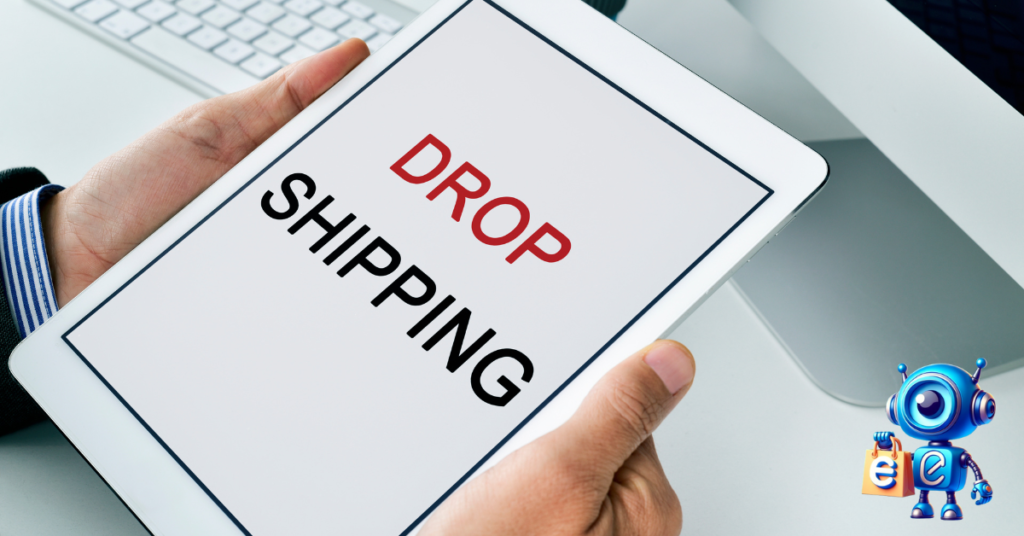If you are starting an online business, sourcing inventory is crucial. How you choose to supply your store also matters; it all comes down to the wholesaler you select.
The wholesaler you choose plays a vital role, regardless of the type of business you are dealing with.
Working with the best wholesaler allows you to increase your inventory and diversify.
Therefore, find a wholesaler that aligns with your niche and offers excellent prices, timely delivery, and reliable customer support.
This guide will help you understand how to find wholesale suppliers, how it works, and the best practice tips.
Table of Contents
What is a wholesale supplier?
A wholesale supplier is a company that purchases products directly from the manufacturer and sells them to various outlets for onward sale. These outlets can be online retail stores or brick-and-mortar businesses.
Wholesale suppliers sell products in bulk at a lower price, reducing overall costs and handling time. The retailer then sells the products directly to the consumer at a higher retail rate to make a profit.
Purchasing products in larger quantities allows you to take advantage of volume discounts, maximizing your potential profit margin. Wholesalers are the “middlemen” in the supply chain.
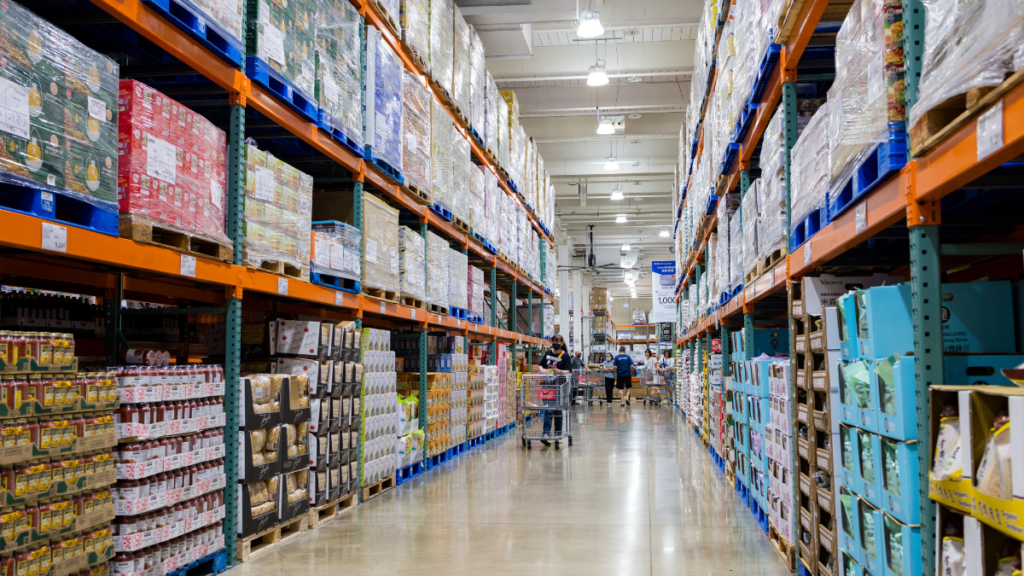
Without them, the manufacturers would have to sell goods to retailers. Wholesaling rose in popularity in the 19th century after the Industrial Revolution was in full swing.
A wholesale supplier may offer a variety of goods or specialize in a single product. These suppliers hold a product license, which means they have special permission to sell certain items.
Because of these licenses, they can’t sell these products directly to everyday customers.
Instead, they offer them at wholesale prices to wholesalers. This way, you can buy the products for less and resell them in your store at a markup to make a profit.
Different types of wholesale suppliers
Before finding a wholesale supplier, it’s essential to understand the distribution channels. Products may follow different avenues when moving from the manufacturer to the retailer. Since the game involves various players, different wholesalers serve other markets. So, what are the types of wholesale suppliers?
- Manufacturer: A manufacturer makes the goods and sells them to the resellers. They can also be your wholesale vendor if you buy goods directly from them. This mostly happens when the supplier is an individual or a small entity.
- Exclusive distributor/importer: An exclusive distributor/importer is a gatekeeper for a specific brand or product in your region. They’re the only ones allowed to import those items and sell them to suppliers in bulk. They can sell the products to other smaller wholesalers or directly to retailers.
- Wholesaler/Regional Distributor: This business distributes products in bulk within a specific region. It purchases boxcar-sized lots and then distributes them to local wholesalers, who resell them to retailers.
- Jobbers: These wholesalers mainly sell items to retail and local grocery stores. In most cases, jobbers make daily supplies.
Finding wholesale suppliers
Despite the vast network of online wholesale suppliers, finding a reliable one can be challenging. Language barriers that cause product misinterpretations or other misunderstandings can also be difficult.
Finding a good wholesale supplier is about knowing where to look and what to consider. Research is required to find the ideal niche-specific suppliers. This section will discuss finding vendors and the best practices for seeing them.
Consider your business niche.
The first step in finding a suitable wholesaler is to consider your niche. Many suppliers offer different products and services, and you need to identify the one with the right products for your venture. Remember that there’s a pool of suppliers out there, and considering your niche helps you narrow down the potential suppliers.
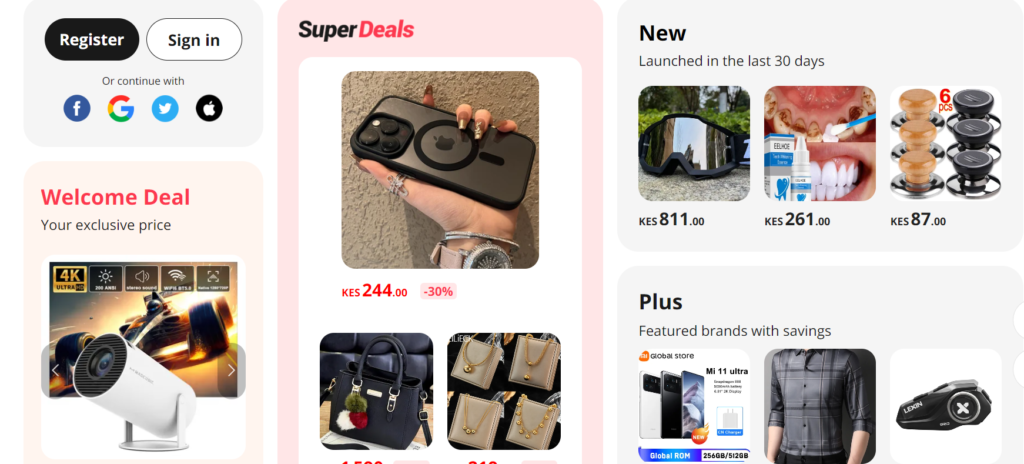
For example, there are many suppliers if you aim to sell everyday products like toothpaste or cleaning supplies. People use them quickly and buy them all the time, so many businesses sell them in bulk at lower prices.
You should find a different kind of supplier for unique items like handmade pottery. These suppliers might work directly with artists and craftspeople to get those one-of-a-kind products.
Food is a whole different ball game! Here, safety and freshness are super important. You should partner with local farmers or producers who can guarantee high-quality ingredients.
Understand distribution channels.
A distribution channel is the path products follow from the manufacturer to the consumer. Distribution channels differ with the industry, as each has unique sets. Understanding your distribution channels helps you get a clear picture of how your products reach the end user.
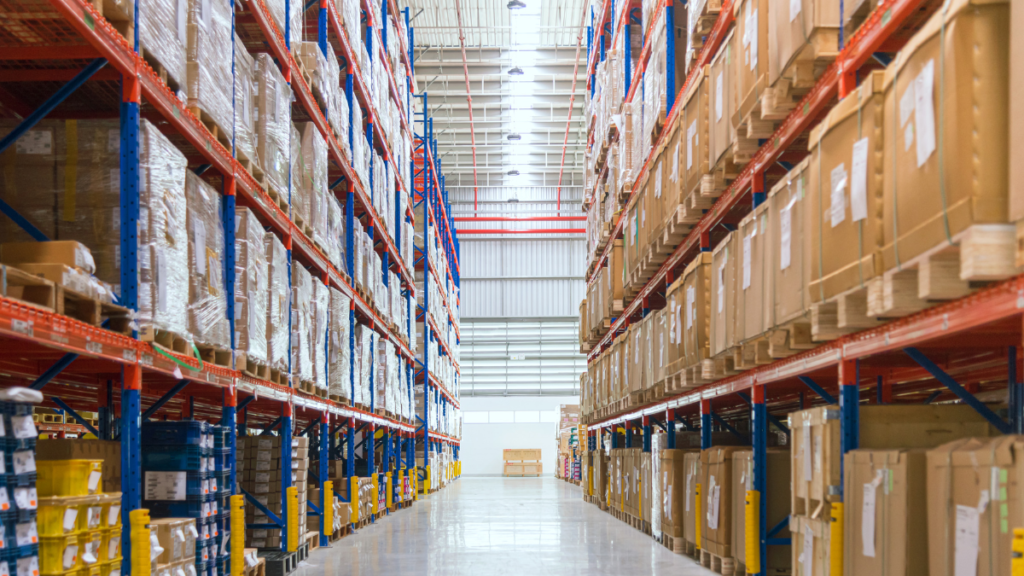
Some industries have complex distribution channels unless you use direct distribution (from the manufacturer to the end-user).
A good example is the fashion industry, where products move from the manufacturer to the wholesalers. The wholesalers sell the products to the retailers, who resell them to consumers.
Contact the supplier first.
Cutting out the intermediary can be a perfect idea. Imagine contacting the company that makes the products you want to sell.
This way, you can learn more about them and get a better deal on wholesale prices. On top of that, you’ll avoid extra charges that the distributors or retailers might add.
However, there are upsides and downsides to trying to reach out to the manufacturer.
Most only occasionally work with small businesses. They might require you to buy a large quantity upfront (the minimum order quantity) or more resources to ship directly to you. Also, dealing directly with them might mean more back-and-forth communication.
Start shopify Free Trial Today


The upside? Lower prices and the chance to create unique products you won’t find anywhere else.
So, weigh the pros and cons to see if going straight to the manufacturer is right for you.
Have a productive first meeting with the vendor.
The first impression matters greatly; you want to create the right one for the wholesale supplier. While finding the right supplier immediately is hard, having a clear and meaningful first conversation can help you identify the ideal one.
Provide the wholesaler with detailed information about the products you are looking for. Also, collect all the necessary information from the supplier you consider, including the payment terms, minimum order quantities, delivery timelines, shipping, and minimum purchase price.
Clear and in-depth communication with the vendor can help to avoid misunderstandings as you proceed with your engagement.
Be specific when conducting online research.
It’s essential to use specific wording when trying to find suppliers online. For example, searching for “wholesale suppliers” is like searching for “restaurants” in a new city.
Sure, you’ll get some results, but you might miss out on hidden gems or end up in a tourist trap.
Refine your research and get specific for better results. If you sell phone cases, organic beauty products, or pet accessories, include those keywords in your search and “wholesale supplier.”
Additionally, specify the location. Do you want suppliers in the US, or are you open to international options? Specify your preferred region in your search to narrow down the results.
Be open-minded and creative in this case, and include product names, model numbers, or brands. Think beyond just “wholesale supplier.” Try searching for “dropshipping suppliers (your niche),” “bulk distributors (product category),” or “wholesale manufacturers (product type).”
Attend trade shows.
Trade shows are like giant meet-and-greets for businesses. Whether a local event or a big national one, you can find many wholesale suppliers under one roof.
This is your chance to chat with them, ask questions about their products, and even negotiate a better price.
Even though most business happens online these days, there are still advantages to meeting suppliers face-to-face. Imagine putting a natural person’s name behind all those emails! It can help build trust and smooth things over if there’s a misunderstanding.
Check B2B marketplaces.
A B2B marketplace is a digital platform that unites B2B buyers and sellers. It can be an excellent source for finding the best wholesale suppliers. Think of them as online shopping malls for businesses, where all the suppliers gather in one virtual space. These marketplaces offer various wholesale suppliers, often categorized by industry or product type.
B2B marketplaces allow you to browse supplier profiles, check product listings with minimum order quantities, and compare prices from different vendors.
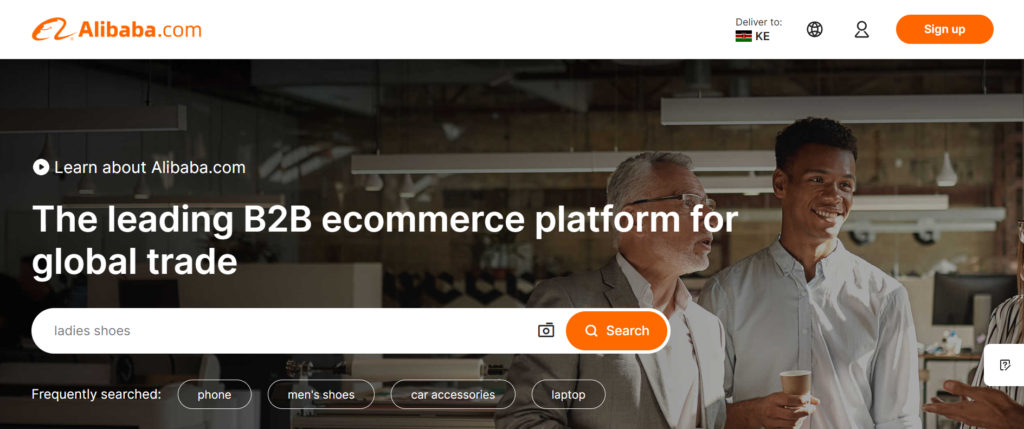
Some platforms even let you contact suppliers directly through the marketplace for quotes or to negotiate deals.
Popular B2B marketplaces include Alibaba, known for connecting businesses globally, and SaleHoo, which focuses on verified wholesale suppliers.
These platforms can save you time and effort searching for reliable dropshipping partners. Just remember to do your research and compare options before diving in.
Use media and social media to find wholesale suppliers.
Following industry resources is a great way to learn more about your niche and spot potential suppliers.
This could include subscribing to blogs, newsletters, magazines, or even newspapers related to your field.
These resources often share news, trends, and information about manufacturers, wholesalers, and competitors.
Staying up-to-date can help you find the perfect wholesale partner for your small business.
Social media is another gold mine. Many brands, manufacturers, and suppliers are now active on platforms like X, Facebook, and Instagram. Don’t be shy if you see inspiring products you want to sell! Reach out to the company through social media to see if they offer wholesale options.
Join the professional network.
Did you know that you can ask your network about wholesale suppliers? Many businesses need to consider this option, but it works.
You can network with businesses close to yours in various ways, including online forums, LinkedIn, or local networking events.
While sharing their wholesalers’ information may seem complicated, you’ll be surprised at how patience may reward you in the long run. Build solid relationships with your network and see how they will share information.
Check online directories and wholesale marketplaces.
Last but not least, check out online supplier directories and marketplaces. Directories are like online phone books for businesses, listing wholesale suppliers.
Some directories focus on specific industries or products, making it easier to find what you need. Some are free, while paid options are also available, so you can choose what fits your budget.
On the other hand, wholesale marketplaces take it a step further. They let you browse products, compare prices, and buy directly from the supplier on the same platform. These marketplaces have become super popular in recent years for both businesses looking to buy and companies looking to sell wholesale.
Common mistakes when looking for wholesale suppliers
Here’s a heads-up on some common mistakes to avoid when looking for wholesale suppliers:
- Going in blind: Don’t just pick the first supplier you find! Do your research and narrow down your options based on your niche, location preferences, and product quality.
- Ignoring minimum order quantities (MOQs): Some suppliers require you to buy a particular product up front. Make sure you can handle the amount before committing.
- Focusing only on price: The cheapest option is only sometimes the best. Consider factors like product quality, reliable shipping, and customer service.
- Forgetting to check reviews: See what other businesses say about their experience with a supplier. Reviews can reveal red flags or hidden gems.
- Rushing the process: Take your time to compare suppliers, and don’t be afraid to negotiate for a better deal.
- Skipping the contract: Always get an explicit written agreement outlining pricing, shipping terms, and return policies with your supplier.
How to find wholesale suppliers: Conclusion
Finding these wholesale suppliers is critical to running a successful store. While finding a wholesale supplier can be overwhelming, it can help your business succeed.
It might take some time to figure out your place in the system, but the effort will pay off. You’ll learn how things work in the retail world and score great deals on products for your store.
You can try Ecommercebot for free; no credit card is required. You agree to turn your E-commerce business into a success story by clicking the image below.

Most manufacturers like selling to wholesalers, who buy products in bulk. Wholesale suppliers then sell those products to stores like yours (retailers) for less money, sometimes way cheaper than the price tag you see in stores.
When finding a supplier, make sure that you ask the right questions and consider essential factors. If you do that, you can source quality products and take your business to greater heights in 2024.
Frequently Asked Questions (FAQs)
- What’s a wholesale supplier?
Wholesale suppliers sell products in bulk at lower prices to businesses like yours. You can then resell those products to your customers at a markup to make a profit.
- How can I find wholesale suppliers?
You can find wholesale suppliers in various ways, including online directories and marketplaces, trade shows, industry resources, social media, etc.
- What should I consider when choosing a supplier?
Here are some key factors to consider when choosing a wholesale supplier:
- Product quality: Ensure the supplier offers high-quality products that meet your standards and customers’ expectations.
- Minimum order quantities (MOQs): Some suppliers require you to buy a particular product up front. Be sure you can handle the amount before committing.
- Pricing and payment terms: compare prices from different suppliers and see their payment options.
- Shipping and delivery times: Consider how long it will take for products from the supplier to go to you and your customers.
- Customer service: Choose a supplier with a good reputation for customer service in case you have any issues.
- Do I need to pay to find a supplier?
Not necessarily. Many free resources are available online and offline. However, some supplier directories and marketplaces charge a fee for access.
